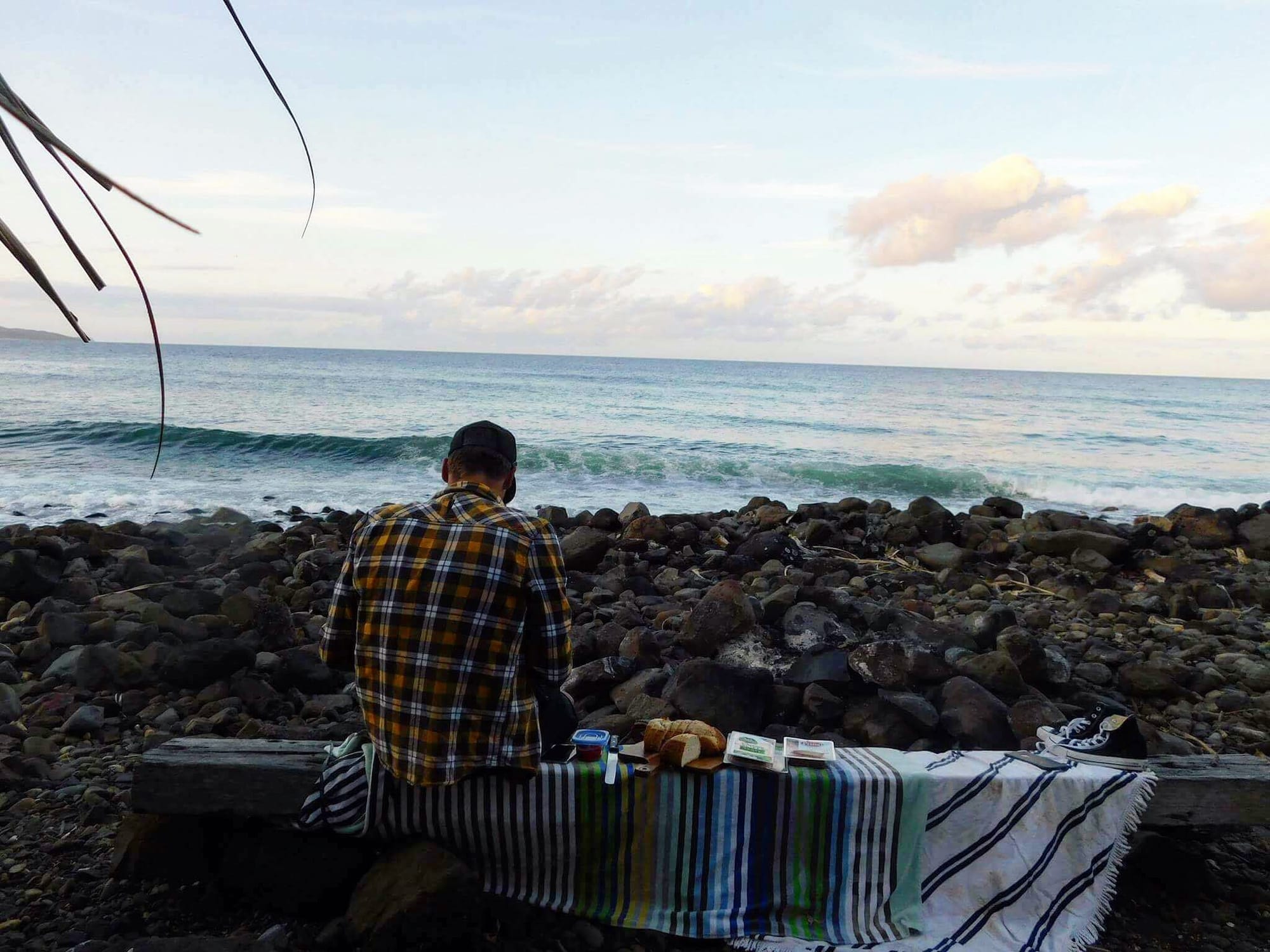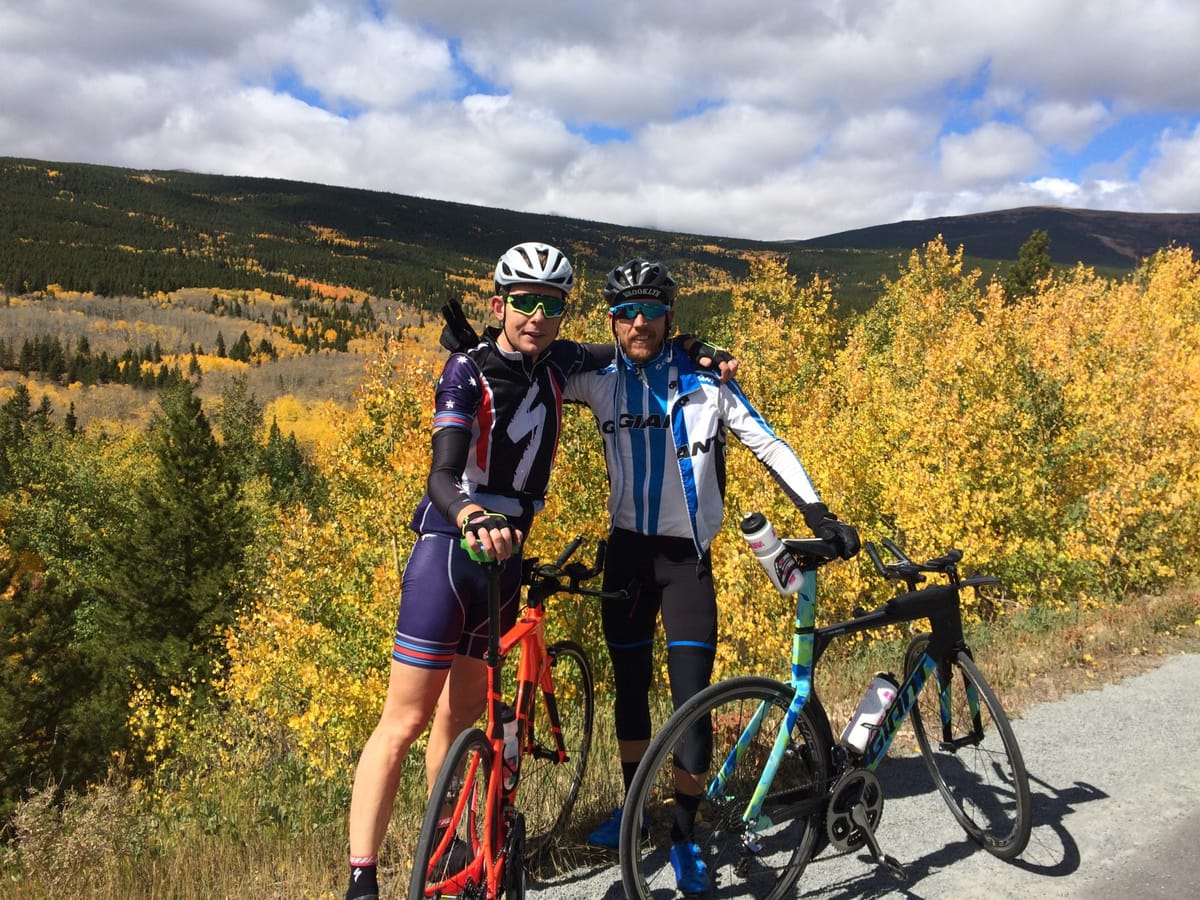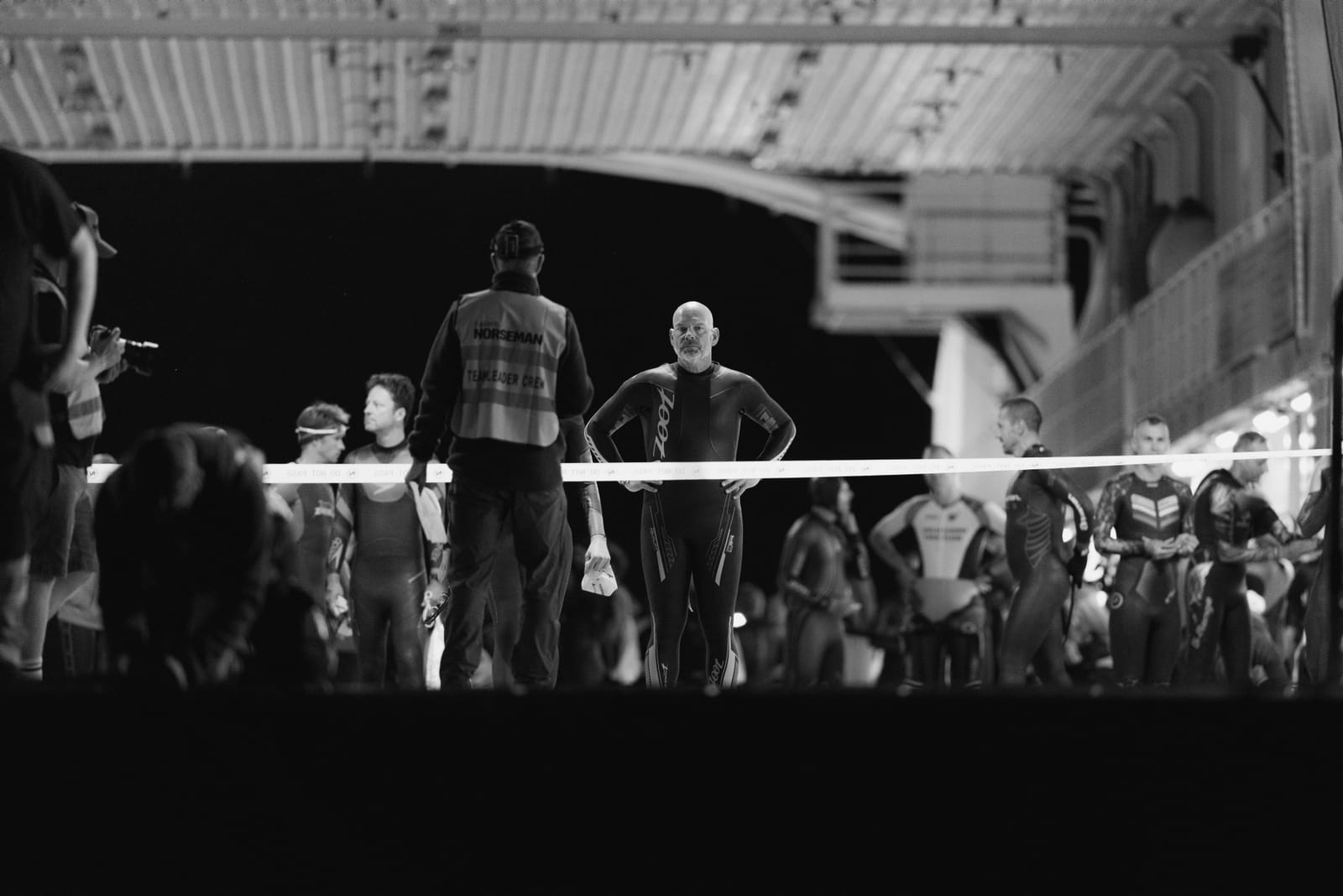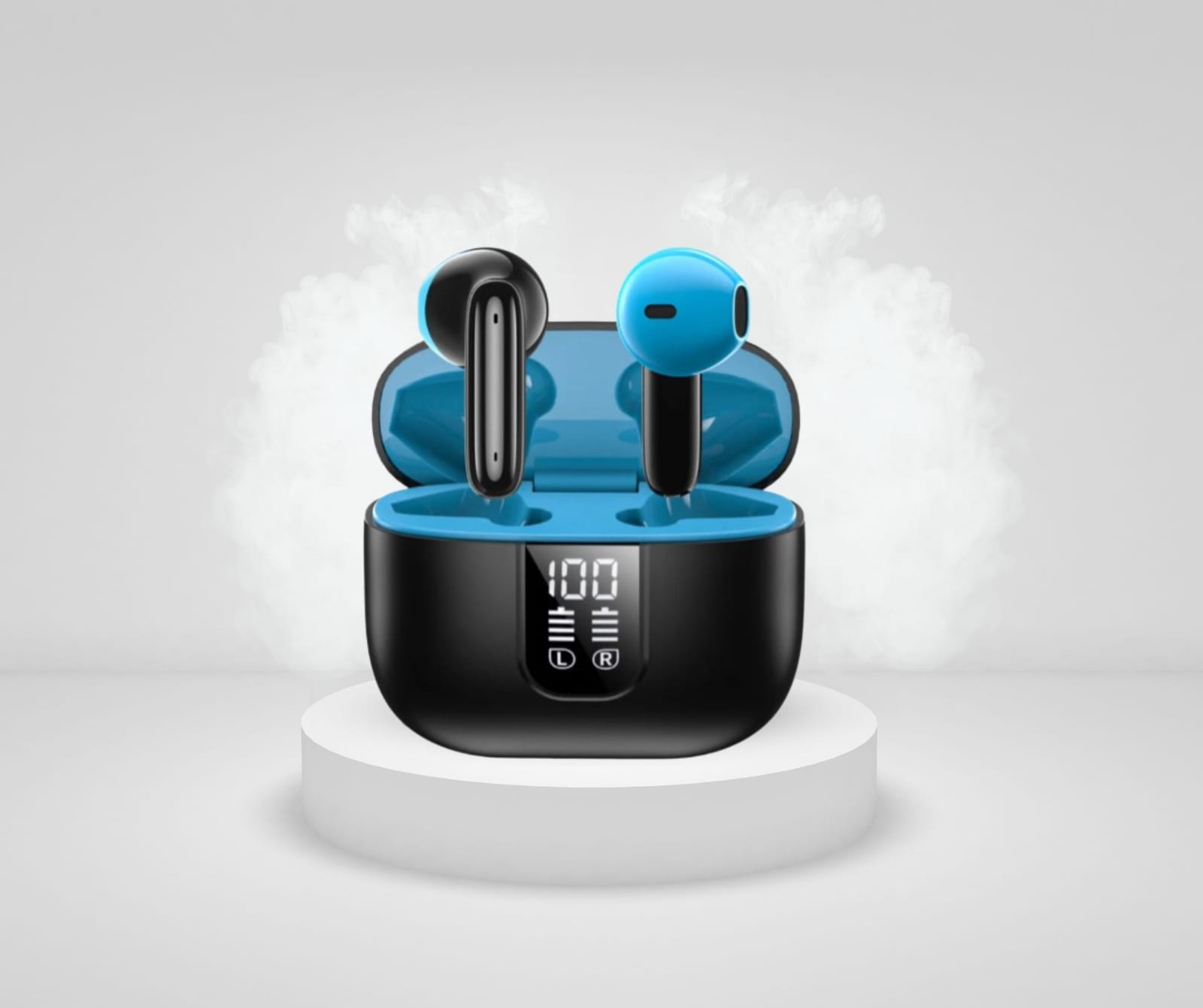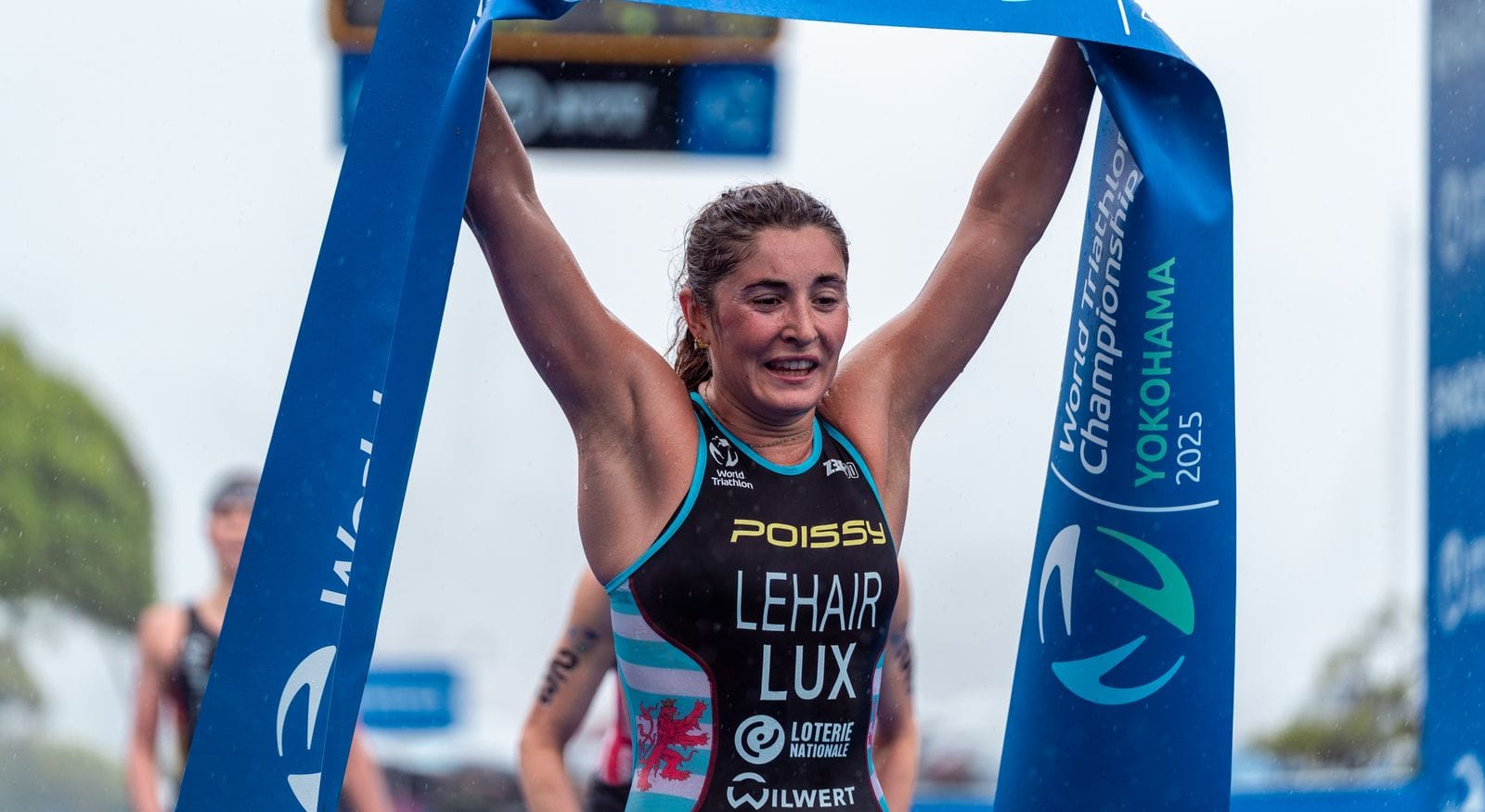Aussie Ironman triathlete, Clayton Fettell talks to Trizone about working with a new coach, re-igniting his passion for triathlon, coping with criticism and looking forward to the future.
Clayton Fettell. He’s been described as hot-headed, unprofessional and ‘promising but inconsistent’. Not too long ago he was ready to ditch triathlon and get a ‘real job’. But it seems Clayto is back on track with a new focus and a renewed fire. And if Ironman Cairns is any indication he just might have what it takes to reach the top. In this no-holds-barred interview, Clayton goes deep with journalist Jeremy Thewlis and talks honestly about dummy spits, being a dad and why at age 30 he feels like he’s finally coming of age.
JT: Clayton, let’s start with Ironman Cairns in June. Did you feel like you had a good day?
CF: Cairns was my third Ironman in three months. I went in carrying a little bit of a back niggle. That flared up on the run and it ended up being a lower back issue. I’ve spent the last four weeks getting treatment. And I’ve also started with a new coach. Let’s just say I’ve had a few changes in my life over the last four weeks.
JT: So who’s coaching you now?
CF: His name’s Cameron Watt. He coaches under Brett Sutton, who has one of the best resumes in the sport. Cam was a former pro triathlete and was director of the Budget Forklift Pro Continental Bike team in Australia. Now he’s switched his focus to coaching.
JT: How does it feel being with a new coach?
CF: Good! I was with my old coach, Grant Giles, for almost 6 years. I’ve still got a great relationship with Grant, but after 5 or 6 years of hard work, sometimes you have to make a change. And so far so good with Cam.
JT: What’s the biggest contrast between the two coaches?
CF: They’re both different, but in a lot of ways they’re also similar. It’s the delivery of the program that’s different. Of course, they’re both trying to achieve the same thing. But whereas Gilesy would throw a lot of volume at you, which certainly works for me, Cam will throw volume, but he’ll also mix in a fair bit of intensity. Grant definitely did intensity, but his program was based mainly on aerobic volume. I’m training myself to go a little bit faster again.
JT: Well, you certainly blasted through the first two legs at Cairns!
CF: Yeah, what I’ve been doing has definitely been working. But at the end of the day I’ve still got to train 30 hours a week and sometimes that gets a bit stale. I’ve been a professional for 13 years, so I’m always looking for a change. And I’m feeling confident that this change will get me where I want to go.
JT: 13 years is a long time. What keeps you going after all this time? Because it’s not the money is it?
CF: It’s definitely not the money! There are probably ten thousand professions you’d choose before triathlon if you were looking for the money! No, it’s purely a love for the sport. I love everything about triathlon – I love the history of the sport, I love the brutality of the sport. For me, I think Ironman is probably the hardest one-day event in the world. Especially Hawaii.
I grew up watching short-course stuff in Australia, like Formula 1. That’s what got me into triathlon, but once I discovered Ironman in my early 20’s, I’ve never really looked back on that passion.
JT: That’s not quite true though is it? You came close to throwing it all away not so long ago.
CF: About two years ago I met Kendall and yes, I lost my focus a little bit. And in triathlon with a lost focus you’re exposed come race day because everything’s got to be 100% with this sport. It’s too hard to turn up at 90% and get a result. You have to be on at least 95 – 100% of your capacity. But I still love the sport. And right now I’m going through a phase where I’m really loving the sport and doing anything I can to be as fast as I can.
JT: Do you think it’s possible for athletes not lose their focus or is this something that everyone has to go through?
CF: I think everyone goes through these times. I look back and I’ve definitely had a few periods in my career when I’ve hated the sport. The last thing I wanted to do was to go out to ride in the rain. That’s just human nature, I think. No one wants to go out and get cold and wet. I do love it, but at the end of the day it’s also my job. Some days you’ve got to remember that and just get the job done. But I’d say 100% of athletes who have had a career spanning more than five years have gone through some pretty dark periods.
JT: Is there a particular time when you thought, “That’s it… I’m throwing it in”?
CF: At the start of this year, I was almost done. I’d had a bad year and a half, just under-performing. There were a couple of little bright spots where I thought “I’m on here, I’m coming good”. But then I’d get back into a rut and lose focus. But for some reason I just kept ticking on. There was an inner desire to keep pushing on, but it was really tough. Then at the start of this year I went and raced down at Geelong and I hated it. I was miserable. I came home and told my wife I was going to quit and I was going to get a job.
JT: What stopped you from walking away?
CF: If it wasn’t for my wife and my family I’d be surprised if I was still here training and racing triathlon. But Kendall said to me, “Are you going to regret this?” So I kept a little bit of light training going. It was enough to keep the momentum and then that passion just grew and grew and grew. I’m glad I pushed through that period. But at the end of the day it was my wife and my family that kept me pushing on. And that’s huge, because at that stage I was lost – I wasn’t sure what I was doing, I had no confidence in my racing and they were the ones who put that fire back in my belly. They’ve reignited it, that’s for sure!
JT: So you feel like you’ve got the fire back?
CF: Yep. The fire’s definitely back in the belly. I feel like I’m 18 again and now I’m really going after it. It’s certainly nice getting up in the morning with that sense of direction.
JT: You’ve had a reputation in the past for being hot-headed and not coping with criticism too well. When it comes to past history is there anything you regret?
CF: Cairns a few years ago… I was sitting on Luke McKenzie’s wheel and the officials gave me a penalty and in the heat of the moment I blew up at the official. I stormed into the penalty box, done a big skid and then I threw my bike. Yep… I threw my bike. I threw my Giant and these guys are paying me thousands and thousands of dollars to be riding their equipment and I totally disrespected the equipment and my sponsor. I’m not proud of that. I was a bit of a young hot-head in my mid-twenties. I learnt a lot from stuff like that. There was a lot of arrogance. Sure, you need a bit of confidence to race well. But I found it really hard to disconnect from my race head from my normal brain. It was just unprofessional.
Now I’m striving to be professional in every way. Fortunately, we’ve got guys like Jan Frodeno, the current world champion, who is a true professional. It’s so good for our sport having a guy like that because it gives all of us someone to look up to and it’s also a gauge of the level of professionalism that it takes to get to the top. I mean, I was talking to my strength and conditioning coach who had been talking to Frodo’s conditioning coach. The first sentence Frodo said to his coach when they met was that he had a 2% discrepancy in leg strength! Two percent! 15 or 20 years ago competitors were still drinking beers! The sport’s certainly changed. You can see that in the results too – the times are getting quicker.
JT: So what do you say to the critics, because there are always people who want to tear you down?
CF: Early in my career I was really sensitive to what media and the public said about me. I used to go and read the forums. It wasn’t until February this year that I realised that all of that, no matter whether it was positive or negative, that’s not my opinion. And at the end of the day it holds no value with what I’m doing. So now I think it’s water off a duck’s back if someone wants to say something about me. In the past I’d retaliate and send messages and I’d waste energy on something that was so irrelevant. I’ve realised the better I’m doing, the more of it I’m going to receive. So I’m trying to see that as a positive. I’m like – this is good, I’m doing something right. What do they say? No media is bad media!
JT: That’s a pretty major shift in your thinking.
CF: I think my core values are a lot different now. I’ve got a wife, I’ve got a baby on the way in 12 weeks. The reality of being on a single income for the next 12 months hit me in February – I’m having a kid, my wife’s not going to be working. Either I start racing well or I get a job. That was the brutal reality of where I was at. And my training, my headspace, everything shifted within a week of committing to what I was going to do. All the ‘one percenters’ are getting done now, there’re no shortcuts. And now I’m seeing good results through my completion rate with my training. And my professionalism away from training as well… I’ve actually accepted that I am a professional triathlete and this is what I’m doing. You know, for ten years I told people I was a professional triathlete, but I never really believed it. It was kind of like, “Yeah I’m a professional triathlete, but I’m going to be a coach when I’m finished or I’m going to be a nurse or something like.” Now I say, “This is what I’m doing!”
JT: That idea of shutting down your other options and saying ‘either I sink or I swim here’, that’s pretty motivating.
CF: Being a guy, I’ve always been a bit all over the shop. Yes, I’ve had that one main focus of triathlon, but I’ve just bought a house and I’m married now and we’re having a kid. I’m a lot more rooted into the ground than I have been in the past. And that’s helping my focus.
JT: So, it sounds like the headline should read, ‘Clayton Fettell comes of age’. He’s done the teenage, angsty, flighty thing, now he’s a bloke who’s got responsibilities and he’s stepping up to the plate. If you had to describe yourself now in a few words, what would they be?
CF: I’d like people to see a different Clayto. Smarter. More professional. Mature.
JT: When it comes to getting onto the podium, what’s the missing piece for you? What do you need to add to the arsenal to put it all together?
CF: For me it’s the strength of hanging on in the run. My running has gotten better and better every year for the last 10 years. I’m learning now what I have to do and I feel I’m strong enough to do it. I think it’s a matter of time until I crack that top tier in the Ironman.
Q: Talking about running, it was impressive to watch Berks come from behind in the run at Cairns with a 14 minute deficit!
CF: I should have won that race! You don’t get off with a 14 minute lead and not win. But that’s what I mean about those ‘one percenters’. If I’d been doing a bit more strength/endurance stuff, if I had actually gone and had a proper bike fit, if I’d had the massages, those back issues wouldn’t have been present. I wish I’d been doing them because I’d probably have $50k in my bank account from Cairns, which I don’t! They’re painful lessons for an athlete to learn.
Fortunately Berks is one of those few guys I’m happy to see do well, because he’s a great mate of mine. We go back a long way – he used to come up to my mum and dad’s house at Alstonville and we’d smash each other for a month and then go and do some racing. We live 5 minutes apart now. It’s nice to have a mate who’s going for the same goals you’re going for, but we’re enemies on race day!
JT: I couldn’t help but notice that the first ten guys out of the water in Cairns were all Aussies. How much of a difference do you think the Australian swimming/surf culture makes in the swim?
CF: As soon as we see choppy conditions, I think most Aussies rub their hands together. Most Aussies in triathlon have done surf lifesaving at some time in their life. Swimming in the chop is so different to swimming in still water. It’s an underrated training tool. In Cairns, even I was uncomfortable in the chop and I thought, yeah, I need to do a bit more training in crappy conditions like this. It’s a completely different style of swimming. You see the Euros and the Americans and it’s hilarious. They can’t wade, their surf skills are horrible and they can’t sight in the chop. It’s those little fundamentals that Aussies have learnt as kids. I’m finally getting rewarded for doing surf lifesaving every Sunday.
JT: Thinking back over your career so far, what would you put in the highlight category?
CF: I have a lot of highlights, like my first USA 70.3 win at Mooseman 70.3 in New Hampshire. I’d seen a lot of the guys I train with go over there and not win. So it was my second year away, my first real year doing 70.3’s and I won a race. The following weekend I won another 70.3 in Kansas, so in six days I had two 70.3 wins. That was huge for me. And I so arrogant about it! I thought, “Gee, I feel sorry for these guys… I’m so good!” But I learnt a lot. You go from feeling unbeatable and then two weeks later I got smashed. Triathlon is a beast! I’ve had some big wins. Like in 2008 I was the Australian Under 23 Olympic distance champion. That was great, but it wasn’t pivotal.
It’s funny… I got third in a 70.3 in Cairns in 2014, but I had a quick run split and that to me was such a big, big day, because I proved to myself that I can run. I ran myself into third place and that instilled a lot of confidence. I know now I can do it.
JT: We’ve talked about regrets, but at the age of 30, what are you most proud of?
CF: All my 70.3 wins have been from the front. I’ve never run through and taken a win, I’ve won it on the swim and bike. To me, that’s my best, because when I do that I do it alone. I swim from the gun, I go and I lead wire to wire. It’s about being the best guy on the day alone. I don’t do it with other guys around me. There’s still a lot of drafting in our sport and I’m really strongly against that. That’s why I walked away from short course triathlon, because I wanted a sport where you have to be strong across the board. That’s not taking anything away from the best ITU guys – I think they’re amazing athletes on swim, bike and run. But our long-course focus is on an individual athlete in particular. The highlight is winning a race on my own. For me that defines a dominant performance.
JT: Clayton, thanks for sharing some of your fascinating journey with us. We wish you all the best for the birth of your child and of course, for the rest of the season.


